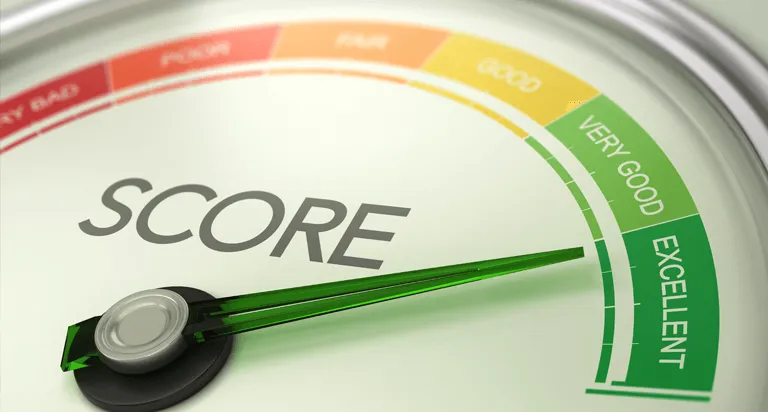
What is Credit?
🔰 What is Credit?
By Atlas, Credit Cure Correspondent
Let’s be honest—credit can feel like one of those things you’re just expected to understand, even if no one ever really explained it. We use it to buy homes, lease cars, and get approved for everything from furniture to phone plans. But if someone asked you to explain exactly what credit is, would you feel confident answering?
If not, you’re not alone.
At Credit Cure, we’ve worked with thousands of Canadians who use credit regularly but were never really taught how it works, where it came from, or how to use it to their advantage. So let’s dig in.
This isn’t just a list of facts. It’s the real story of credit—how it began, what it means today, and why it holds so much power in your financial life.
Credit, at its core, is trust.
That might sound a little philosophical, but it’s actually the simplest and most accurate definition. Credit exists because someone—usually a lender—believes you’ll pay them back. It’s a leap of faith, backed by history, data, and a lot of paperwork.
When you use a credit card, finance a car, or apply for a mortgage, you’re essentially saying, “I don’t have the money right now, but I will—and here’s why you should believe me.” Credit is the structure that allows people and institutions to make those promises in a consistent, trackable way.
A Little History (Don’t Worry—It’s Interesting)
Most people think credit is a modern thing, but it’s actually one of the oldest financial tools in the world.
In Ancient Mesopotamia, farmers scratched promises into clay tablets to repay grain and goods after harvest. This was a formalized system of lending—just without the paperwork. Learn more about that here:
https://www.koho.ca/learn/history-of-lending/In medieval Europe, merchant banking and letters of credit allowed traders to move goods long distances without carrying coins. A fascinating look at early commercial credit can be found here:
https://www.medievalists.net/2009/07/merchant-banking-in-the-medieval-and-early-modern-economy/In early Canadian history, local stores often ran “tabs,” allowing families to buy on credit and settle their accounts after the harvest or payday.
Then came the 1950s, and everything changed. The first consumer credit cards were introduced (like the Diners Club card), and suddenly, credit was no longer just for businesses—it was personal. Curious how credit cards got their start? Here's a quick overview:
https://www.thoughtco.com/the-first-credit-card-1779328
Over time, credit reporting systems evolved to track how people used and repaid their credit. That’s how we ended up with credit bureaus, reports, and credit scores.
Credit Today: A System That Watches, Scores, and Decides
In today’s world, your credit activity is monitored and rated. It’s not just whether you borrowed—it’s how responsibly you managed that borrowing.
When you open a loan, make a payment (or miss one), or carry a balance, that activity gets recorded. Credit bureaus like Equifax and TransUnion in Canada compile those records into something called a credit report.
From that report, a credit score—a three-digit number usually between 300 and 900—is calculated. This score acts as a shortcut for lenders. A high score suggests you’re financially reliable. A low score? More risk. That number can impact everything from your ability to rent an apartment to the interest rate on your next car loan.
The problem? Most people don’t know how their score is calculated, what’s in their report, or how to improve it. And let’s be real—credit can feel like a language no one taught you in school.
Why Credit Matters More Than You Think
Credit isn’t just about loans. It’s tied to your everyday life.
We’ve seen it open doors to homeownership, business growth, and personal stability. We’ve also seen it quietly shut people out of opportunities: job offers, apartments, financing.
Bad credit doesn’t make you a bad person. But it does make financial life harder. The good news is, it’s fixable. And more importantly—it’s learnable.
We were told to “build credit,” but rarely told how. No one explained what a utilization ratio is, or that carrying a balance—even while paying your bill—can hurt your score. That’s where we come in.
So… What Can You Do?
Start with education. Not memorizing finance buzzwords—actually understanding what affects your credit and why.
Here are some great next reads:
How Credit Scores Actually Work in Canada (Coming Soon on creditcure.ca)
What’s in a Credit Report—and Why It Matters (Coming Soon on creditcure.ca)
Smart Ways to Use Credit Without Getting Burned (Coming Soon on creditcure.ca)
Fixing Credit: What Works and What’s Just Hype (Coming Soon on creditcure.ca)
And if you want a little help? That’s our specialty. Credit Cure offers guided coaching to help you rebuild, understand, and own your credit journey. Whether you’re starting fresh, starting over, or just trying to level up—we’ve got your back.
Final Thoughts
Credit isn’t good or bad. It’s a tool. And like any tool, it depends on how you use it.
When you understand how credit works, it becomes a powerful asset. And when you don’t? It can quietly work against you. The good news is—it’s never too late to learn. Whether you’ve made mistakes in the past or you’re just getting started, understanding credit is one of the smartest moves you can make.
And trust me—it’s worth it.